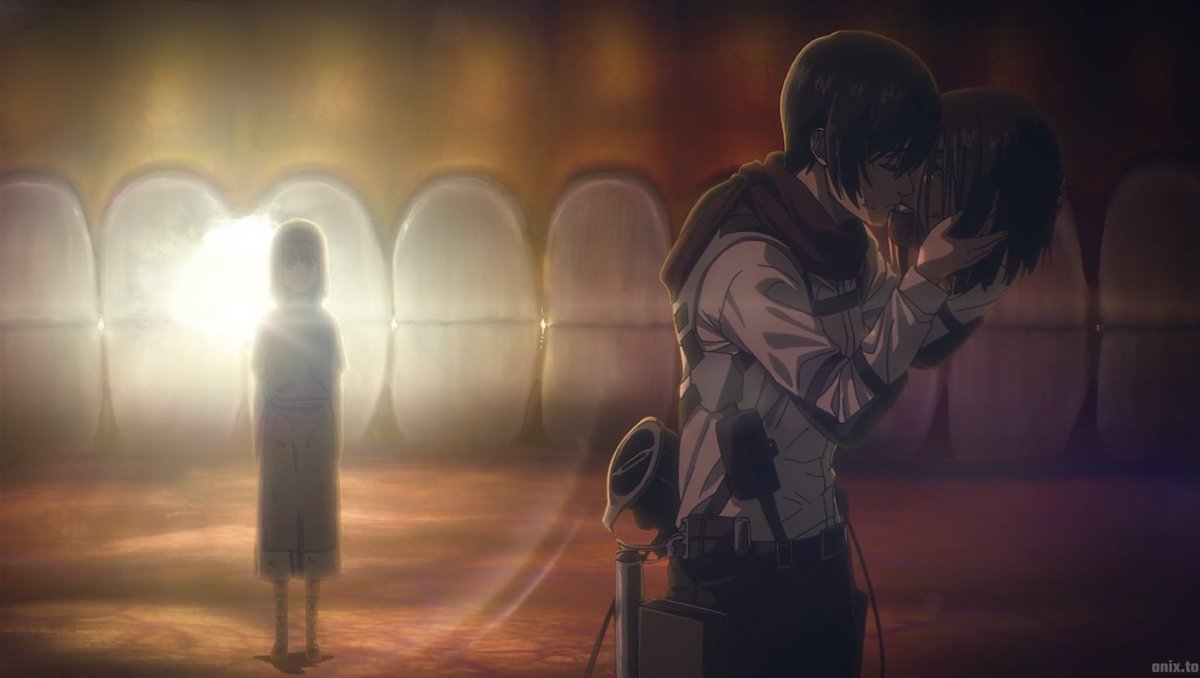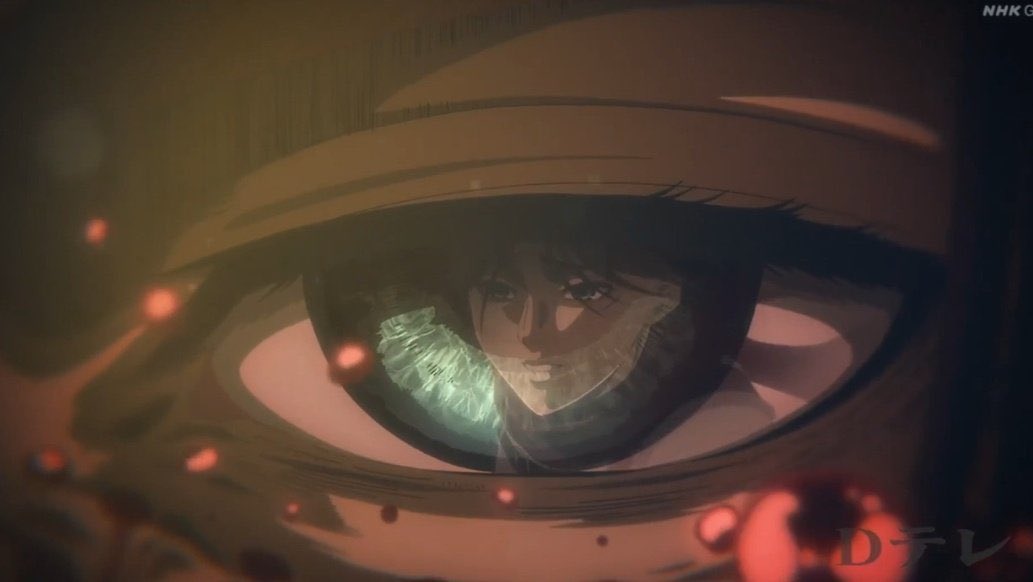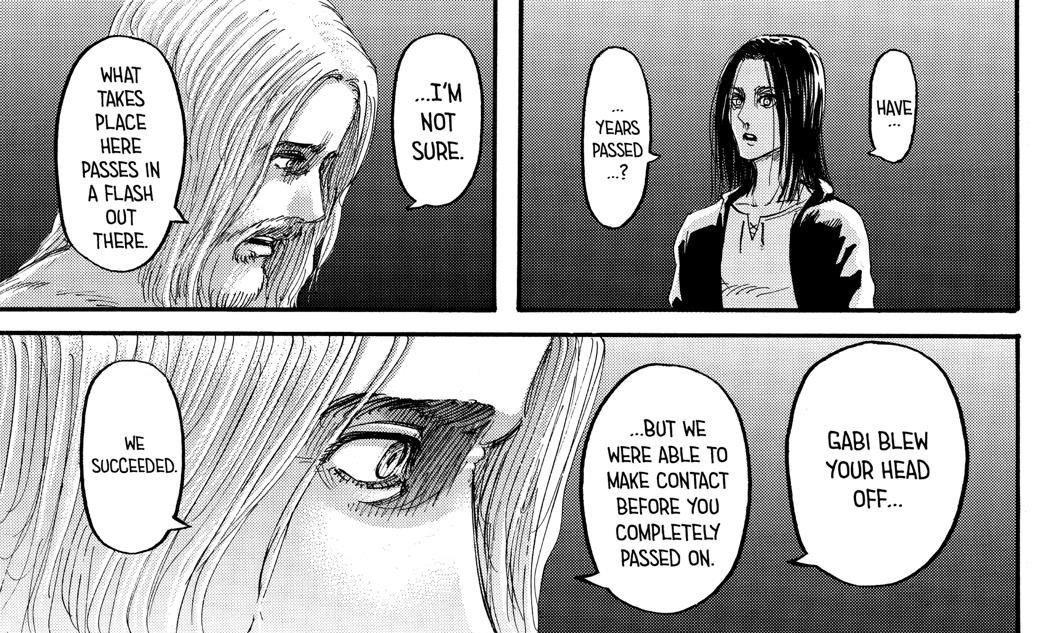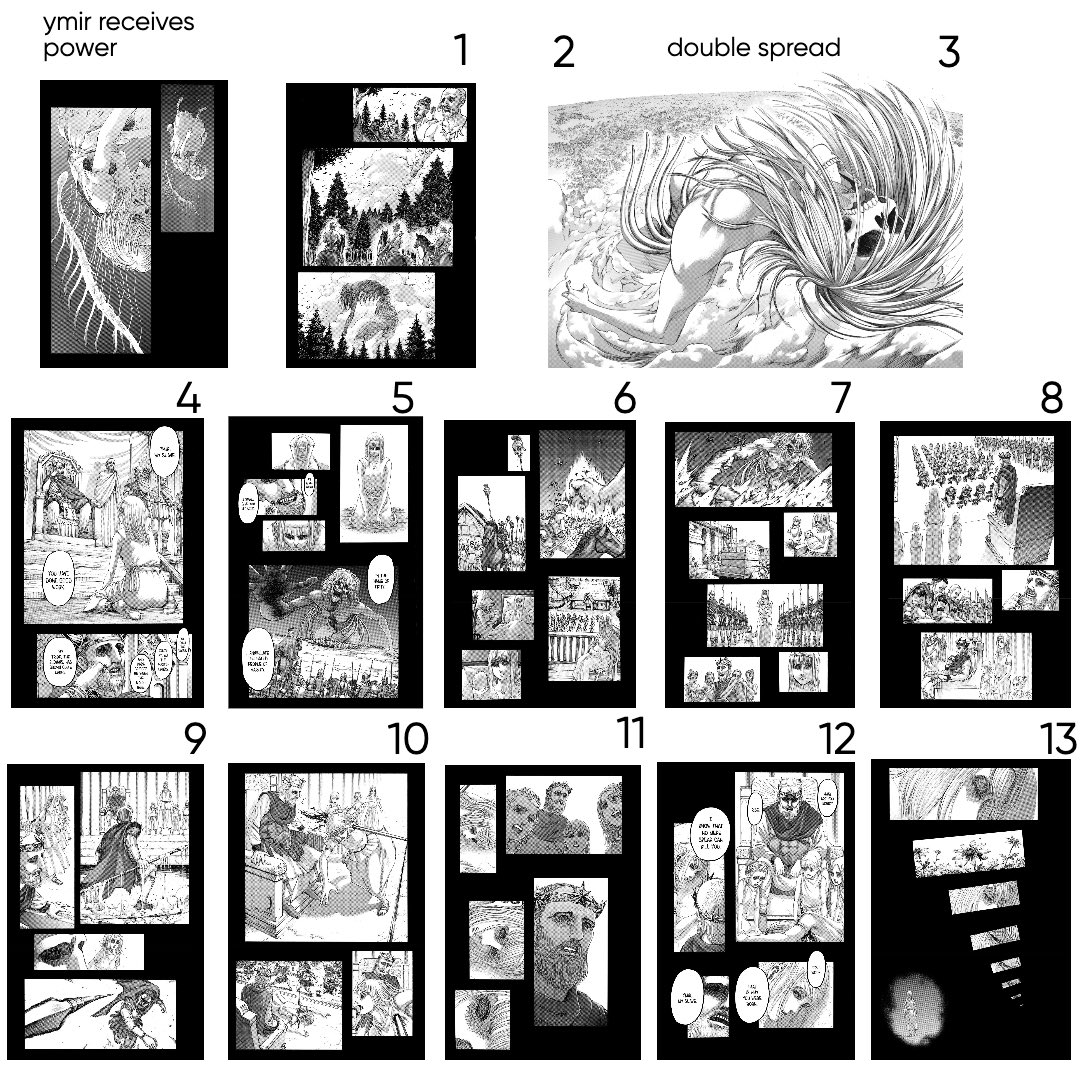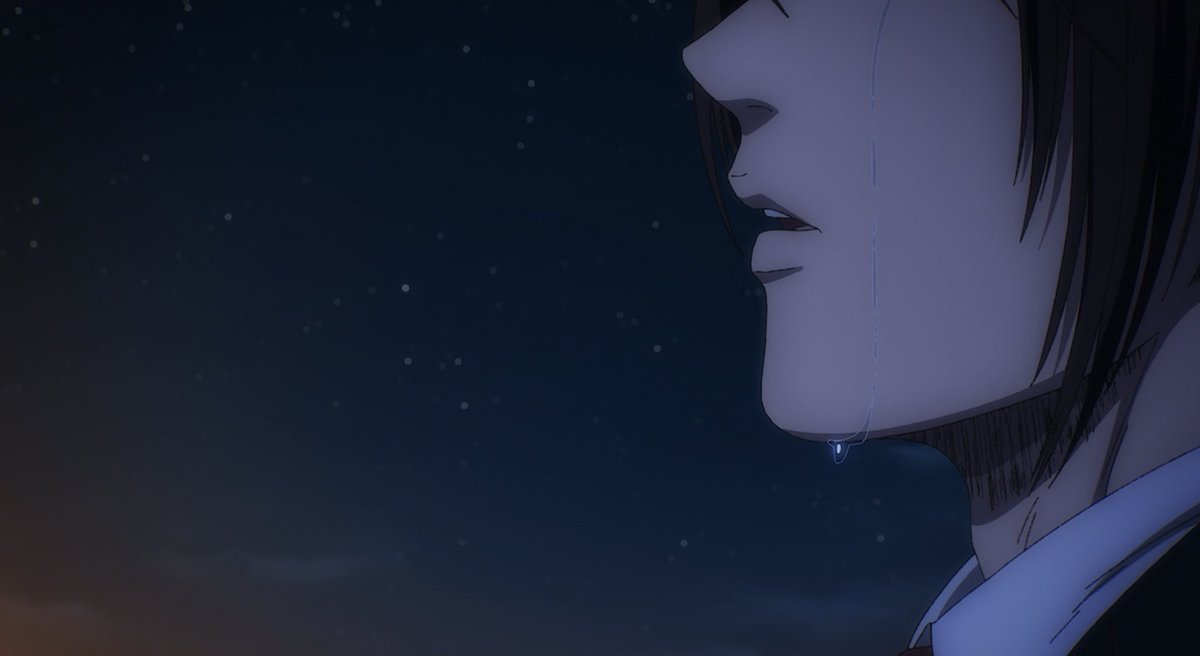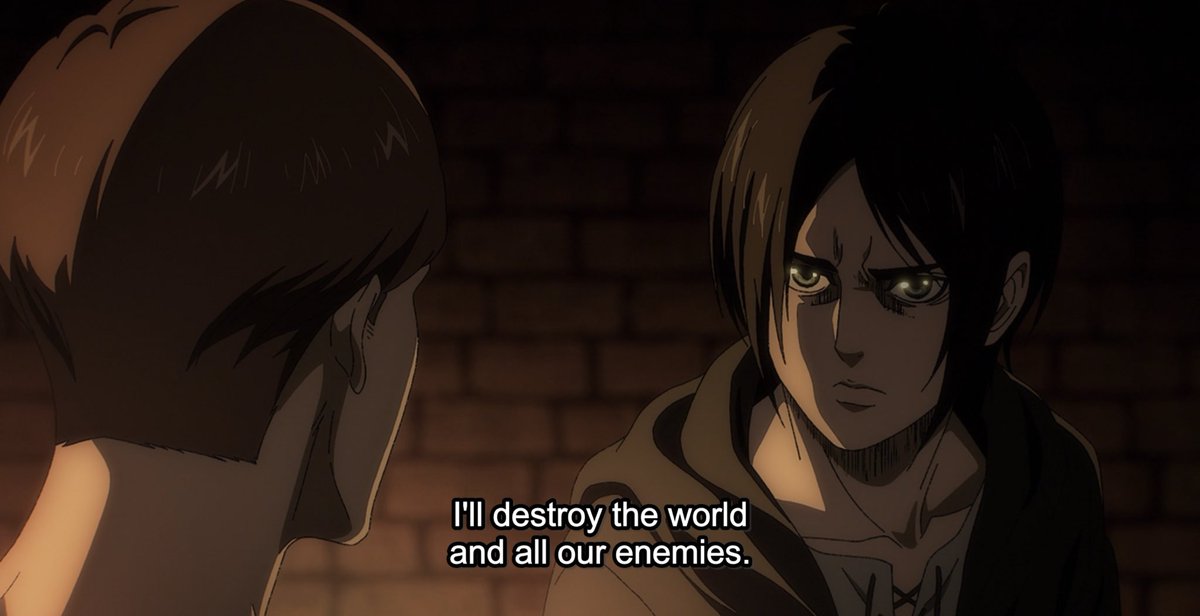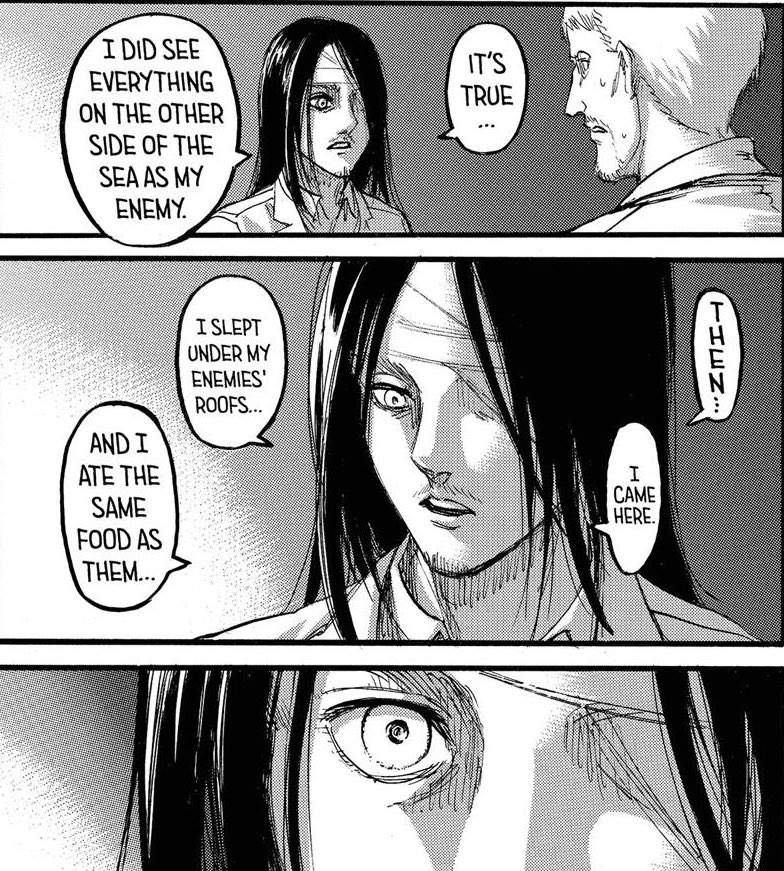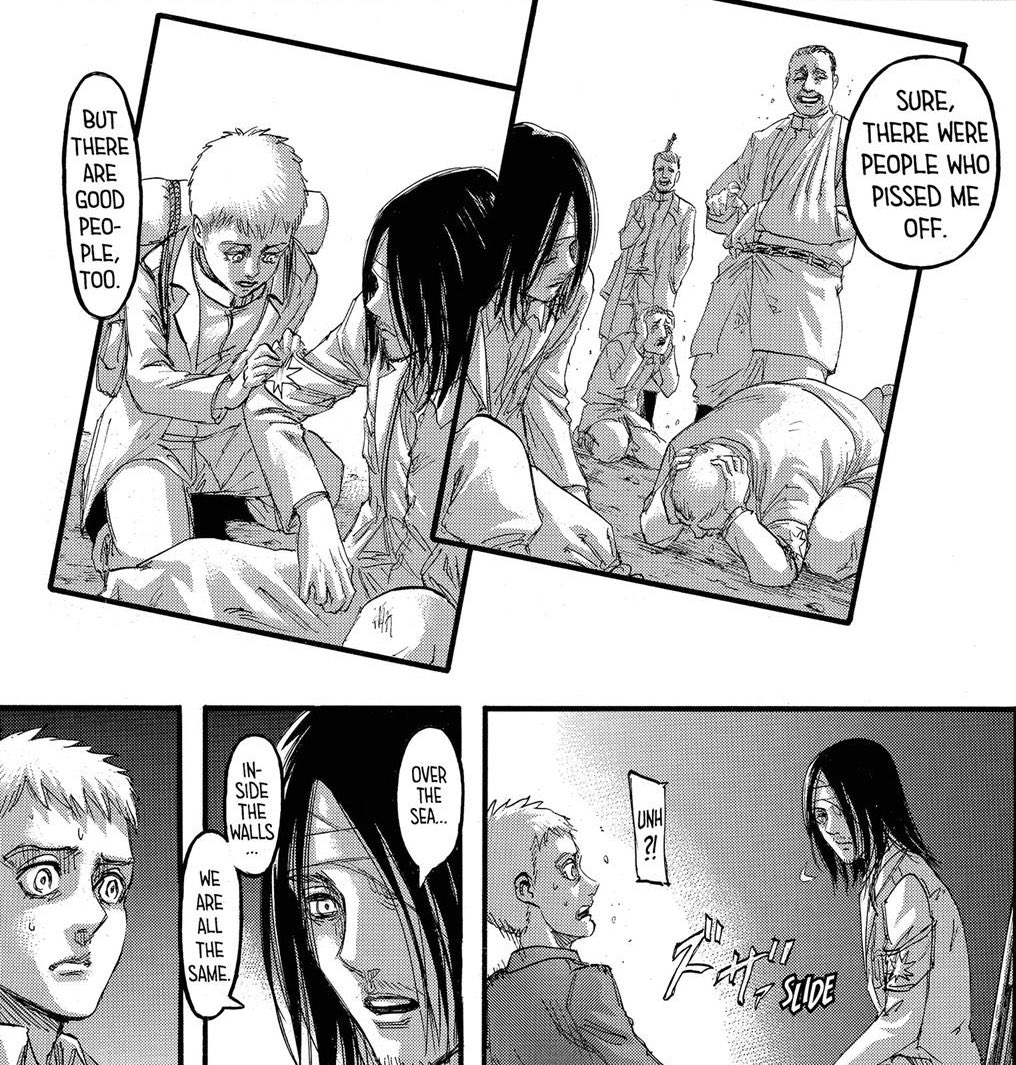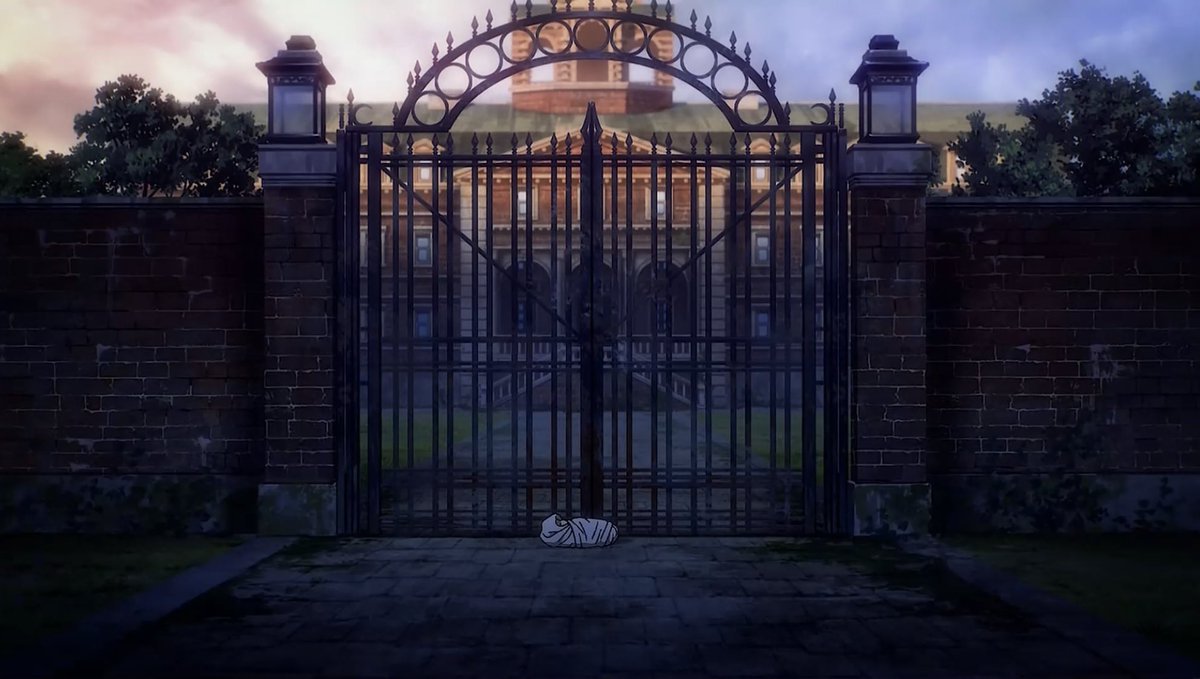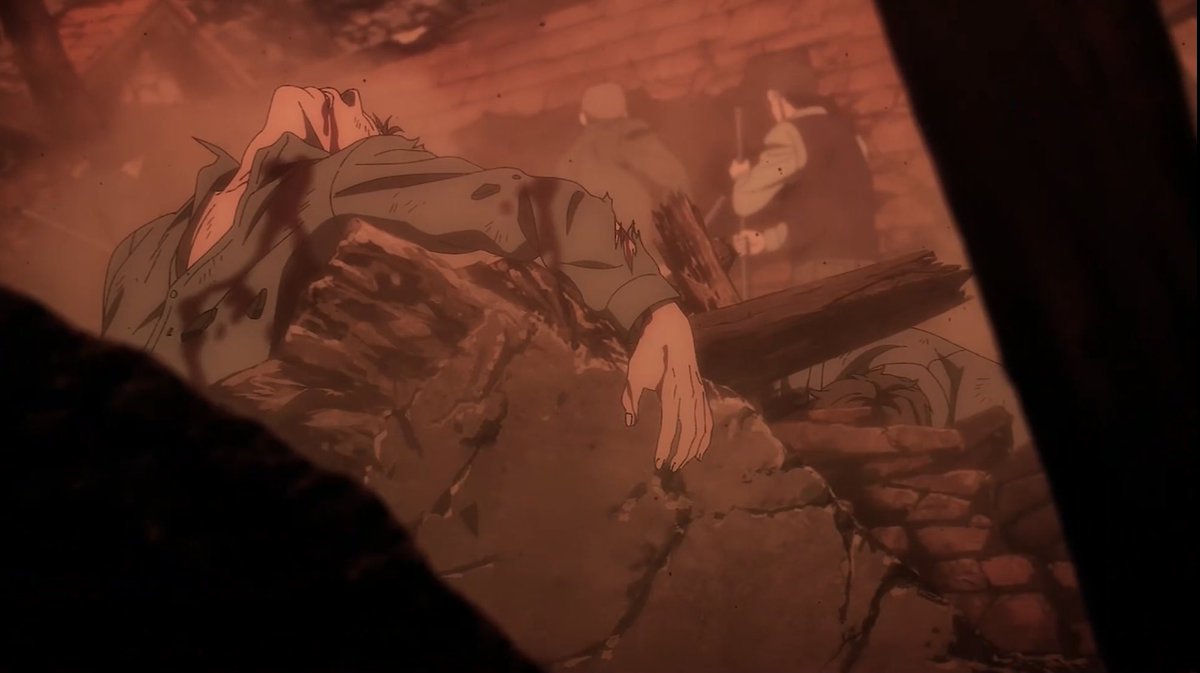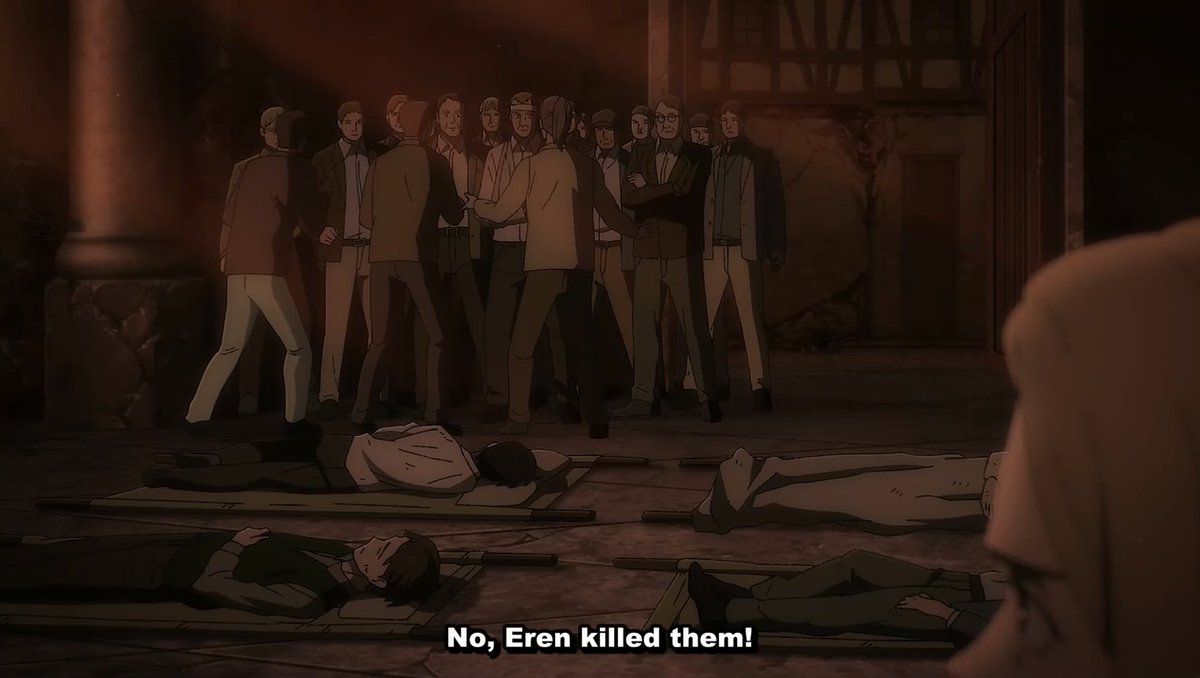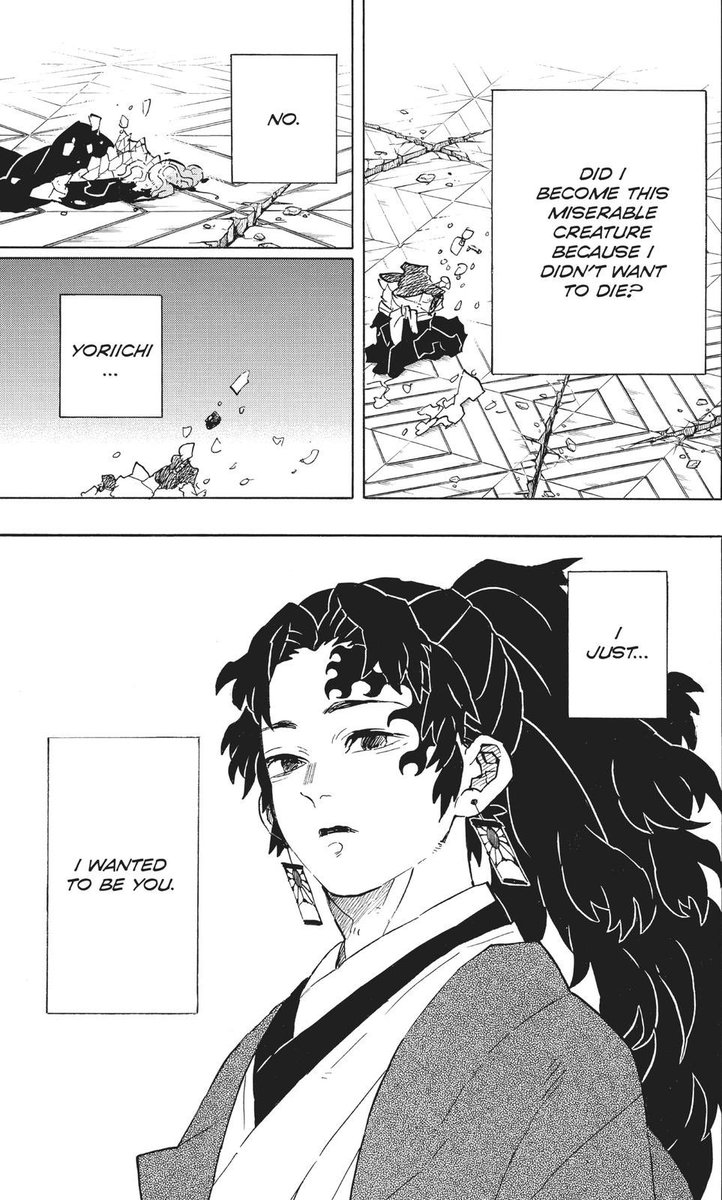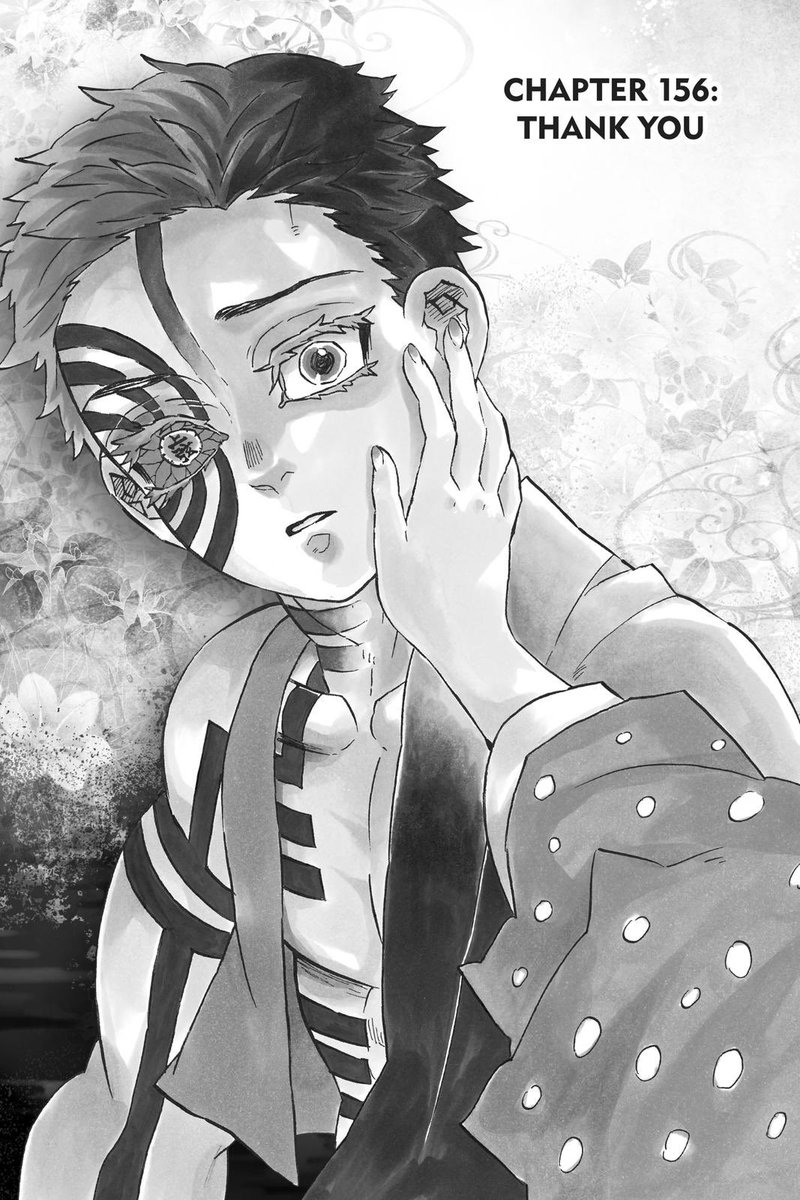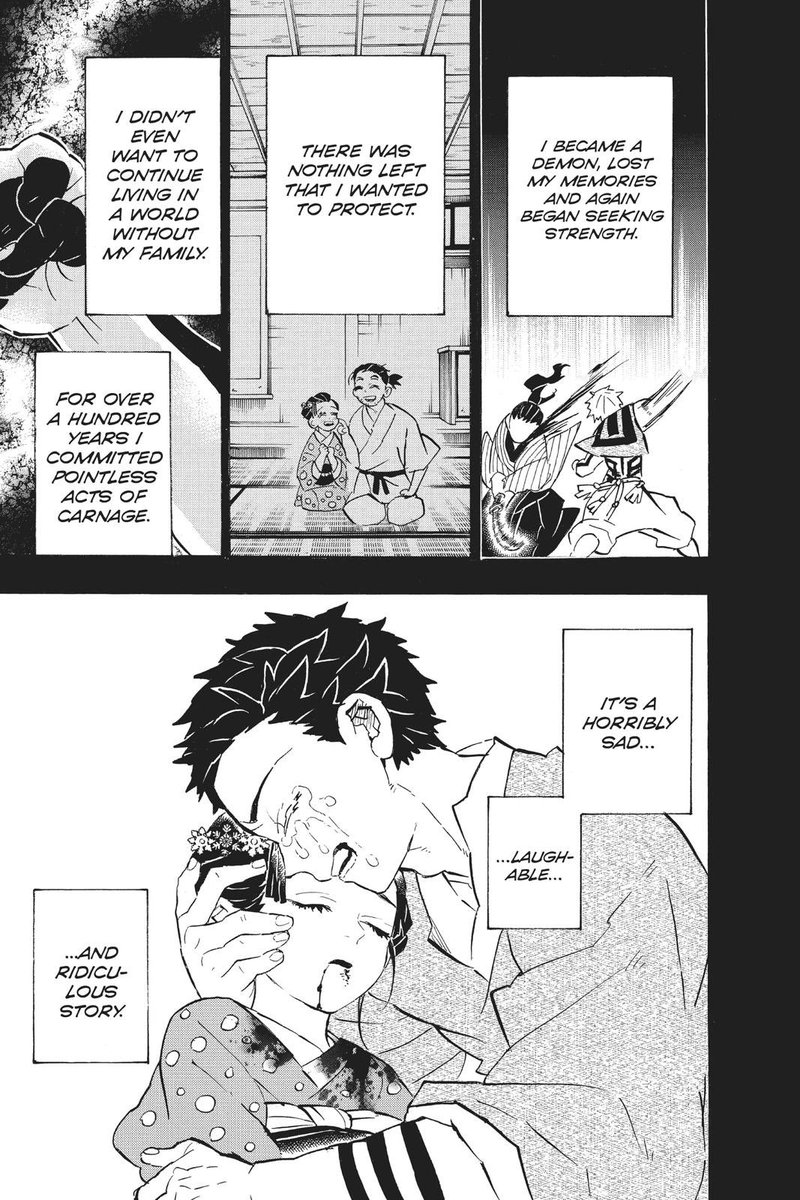this thread will be safe for anime onlies until i say that i will be getting into manga spoilers. i will be using translations from ‘genius’. this ed serves as a microcosm of eren’s character, centred around his duality (beauty/cruelty) and his pursuit of freedom. + 



the first verse describes eren’s journey, coming to the understanding that the ‘justice’ he sought was shallow because his enemies were the same as himself. ‘over the sea, inside the walls, we are all the same’ - the devils he shot shared the same ‘body and temperature’ as him. + 



he goes on to lament the difference in their treatment just because of the walls they were born into, an ode to the wall that separates eldians from marleyans both in paradis and for the eldians on the mainland. + 





he then dismisses the destiny he was born with, saying it’s because they are all born free regardless - the scarf transforming in the bird, symbolic of freedom itself. we are special just because we are born, the line that saved eren from his existential crisis after the cave.+ 



the scarf is what he gave mikasa, therefore it becoming the bird (freedom) indicates that he gave that freedom to her, their bond being a different interpretation of what ‘true’ freedom might be. this is strengthened by the content of the ed as a whole: + 

this ed is a parallel to ed 1, both visually and functionally by answering mikasa’s question - ‘what are protecting?’ eren’s answer is that he will protect her even if that means sacrificing ‘everything’. + 



this ties to ‘sekaikei’, the idea that stories can be formed around the dynamic between two central characters. in aot this would be eren & mikasa, therefore it makes sense that the first and last ED’s form a ‘conversation’ between the two of them. + 

the idea that eren gave his freedom to mikasa is tied to the interplay between the op/ed - ‘i just wanted to save you, never wanted to grab a knife’. killing the kidnappers was the first implementation of his innate rage, a catalyst that may have set him on the path he took. + 



this gives his line at the table scene another layer. instead of mikasa, eren was the one who died by becoming a ‘slave’ to his rage, hence the panel shows eren, not her. his actions at the table scene actually provide a lot of insight into the ed. + 
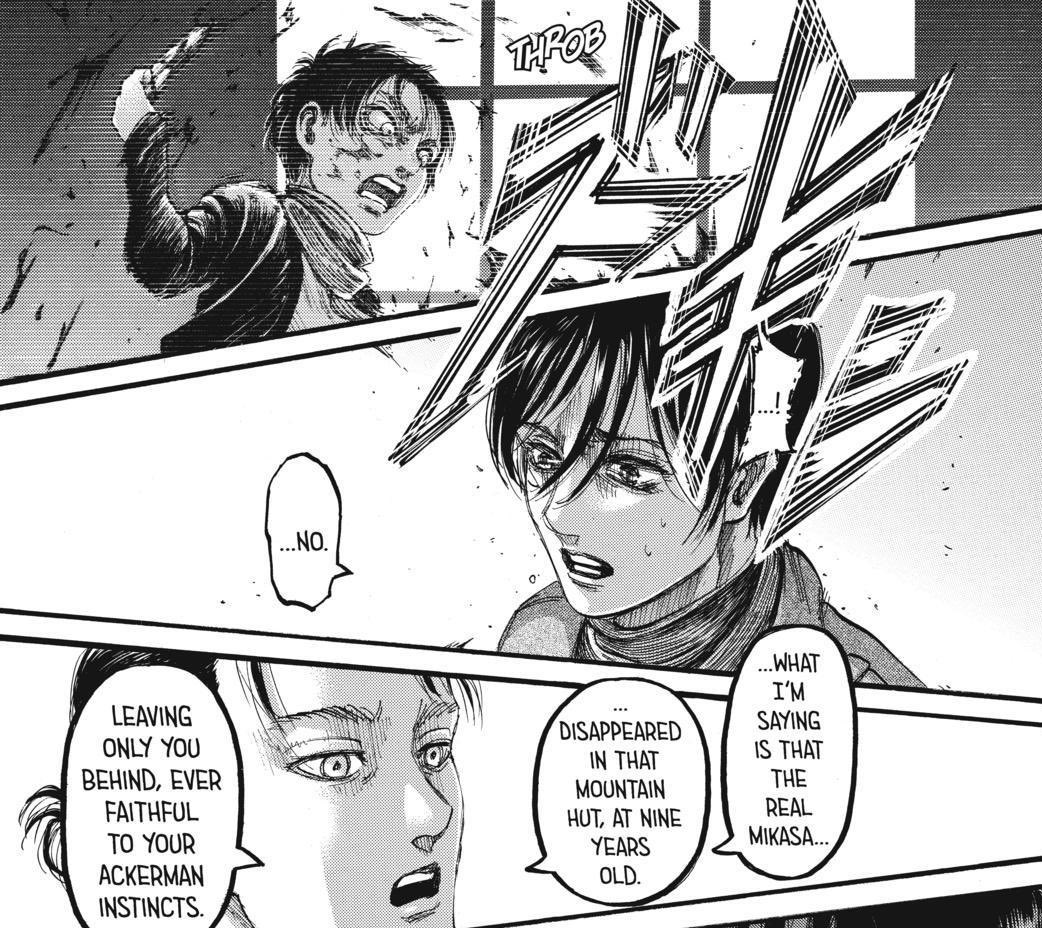
a cage starts to surround the bird with the lyrics ‘if we don’t have a place to return, we can’t go anywhere’ as the bird disappears. eren symbolically destroyed his place to return to through pushing mikasa away - eren creates his own birdcage. + 



this cage is created by his own desires, merely surviving is not enough for him and that pushes him to take actions that remove his own capacity for freedom. this is again tied to op7 where his actions crush the butterfly - symbolic of the beauty in the world. + 



the same birdcage (dusk) becomes beautiful scenery (dawn) when he ACCEPTS the beauty through his love for her. the trapped bird becomes free because our perception can be freedom itself. the meaning in the world is what we choose to take from it (qualia). + 

it’s important to note that this is still his child self, fully able to enjoy the empty, decrepit and people less scenery before him. the adult eren tramples on the flowers, his expression the complete opposite of the child, due to the actions he’s already taken. + 







the next tweet will be the final one for anime onlies, pointing out the beauty/cruelty theme visually. after that i will be going onto MANGA SPOILERS
‘the world is cruel, but also beautiful’ is a major theme of the story, and this is ever present in the ED not just through eren/mikasa but also eren himself. it begins with eren standing in a field of flowers (beauty) holding a knife (cruelty), the blood staining a flower. + 



we see the adult, unsmiling, eren be wrapped up in fire and disappear. this is symbolic of shadis’ words and the end of the manga. ‘what is right is to believe in yourself strongly’ and eren sticking to his desires is what literally became the fire that killed him. + 



his adult eyes are also never shown, a potential tie to king fritz words that ‘slaves have no need for two eyes’ and the main theme that everyone is a slave to something. eren’s desires encage him, beautifully shown in this ed which ties to his final say in the manga. + 

another tie is the obvious foreshadowing. eren is burnt up and disappears but he leaves a world free of walls, hinting that despite him not achieving ‘freedom’ he set a stage for others. + 
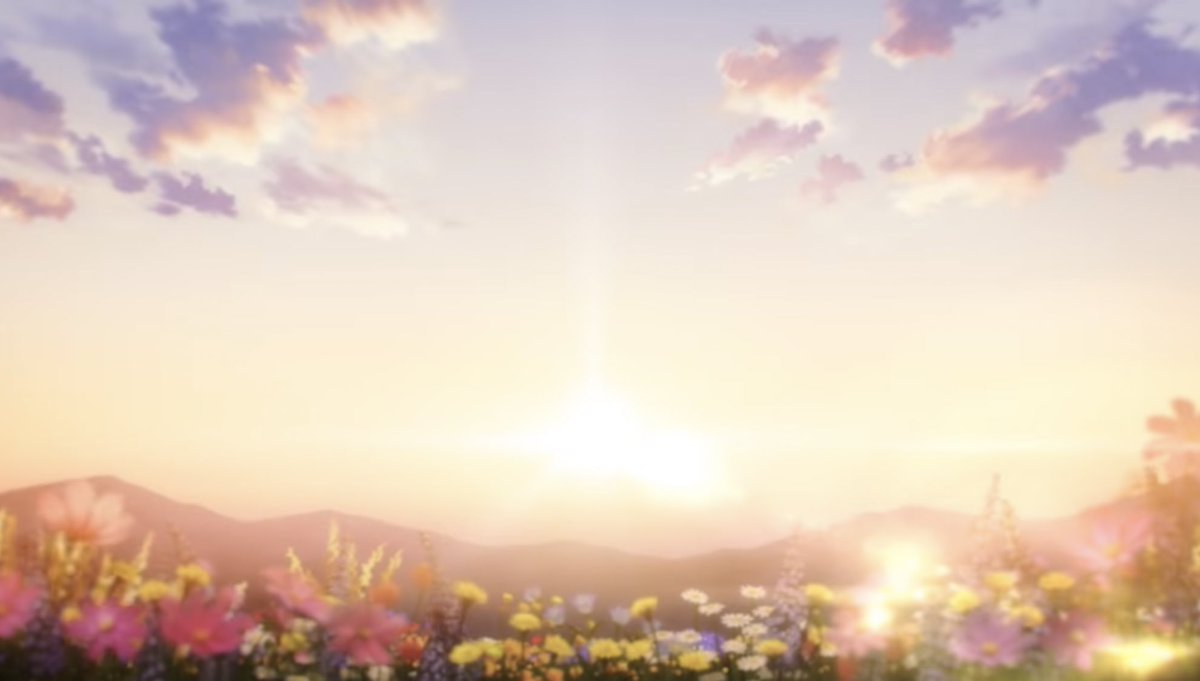
just like how he broke down the walls (which represent barriers between humans) but brought them along in his march so he always remained trapped, the freedom he gives to others is based on whether they view that as freedom. it is our choice to make, just like it was his. + 

final detail is that the bloody flower is a motif that parallels ymir when she entered paths. since this was the moment that emphasised ymirs inability to escape from slavery, it strengthens the idea that the cabin was when eren in fact became the ‘slave’ to his innate desires. + 

that’s all, i love this ed and hopefully you guys enjoyed it too, let me know any additions or other interpretations you have.
the bird in the birdcage of his own creation
the bird in the birdcage of his own creation

• • •
Missing some Tweet in this thread? You can try to
force a refresh



